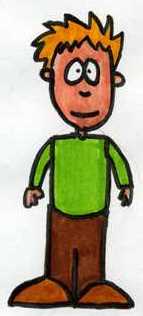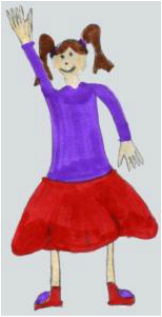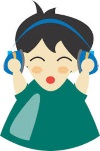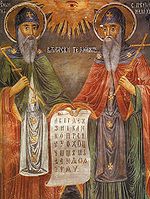Let's speak Russian
Поговорим по-русски (pa-ga-va-reem pa-rooskee)
Listen to what Vanya and Katya say to each other - and then try to copy them.
When you've done that a few times you could try having a similar conversation with a friend.
When you've done that a few times you could try having a similar conversation with a friend.
|
This is a short clip from a video taken on September 1, the day schools start in Russia. It shows first year pupils (aged 6-7) reciting poems to all the other children, teachers and parents. They are carrying flowers for their new teachers.
|
|
|
Watch this short cartoon - can you work out what's happening? What does the wolf say at the end of the film? Can you guess what he means?
|
|
|
You can hear some Russian children talking about the poet Pushkin here. Find out more about Pushkin on Who was Alexander Pushkin?
|
|
Is there anyone at your school who speaks Russian? If you meet any Russians you could ask them to teach you some words in Russian.
A note on the Russian language and its alphabet |



